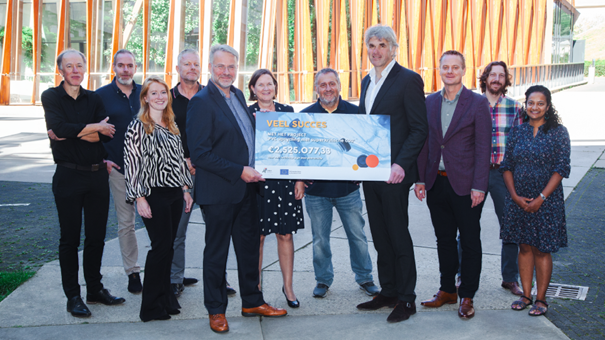Researchers and industry revolutionize PVC recycling
Researchers Edita Jurak , Peter Deuss , Ranjita Bose and Francesco Picchioni of the ENTEG institute have secured a substantial Just Transition Fund (JTF) subsidy to spearhead the development of a groundbreaking PVC recycling technology. Together with industrial partners from the Northern Regions they received an amount of 2.5 million euros for their project. The core focus lies in repurposing PVC-containing materials (polyvinyl chloride) into high-value raw materials suitable for various applications.
While PVC stands as the third most widely used plastic globally by volume, the absence of efficient recycling technologies has been a persistent issue. Industrial partners in the consortium are Cescco2, ASQA B.V., Prysmian Netherlands B.V., Deepgrooves B.V., René Langevoort B.V. en Henriëtte Vaalburg B.V.
Pioneering use of supercritical CO2
The primary objective of the consortium is to revolutionize PVC recycling through the pioneering use of supercritical CO2. Through a meticulous process that separates PVC from solids, plasticizers, and non-usable components, supercritical CO2 acts as a green solvent that effectively removes additives without emitting harmful substances. This process, referred to as 'upcycling', presents an exciting and environmentally conscious alternative to traditional recycling methods.
Pilot factory
Extensive laboratory testing has shown promising results, and the next step is to further develop this technology in a pilot factory. If the pilot factory demonstrates the feasibility of large-scale PVC processing, Cescco2 will work towards establishing a full-scale facility. The exact location of this factory has yet to be determined, but it most likely will be within the JTF region, which includes the province of Groningen and the city of Emmen.

More news
-
17 February 2026
The long search for new physics
-
10 February 2026
Why only a small number of planets are suitable for life
